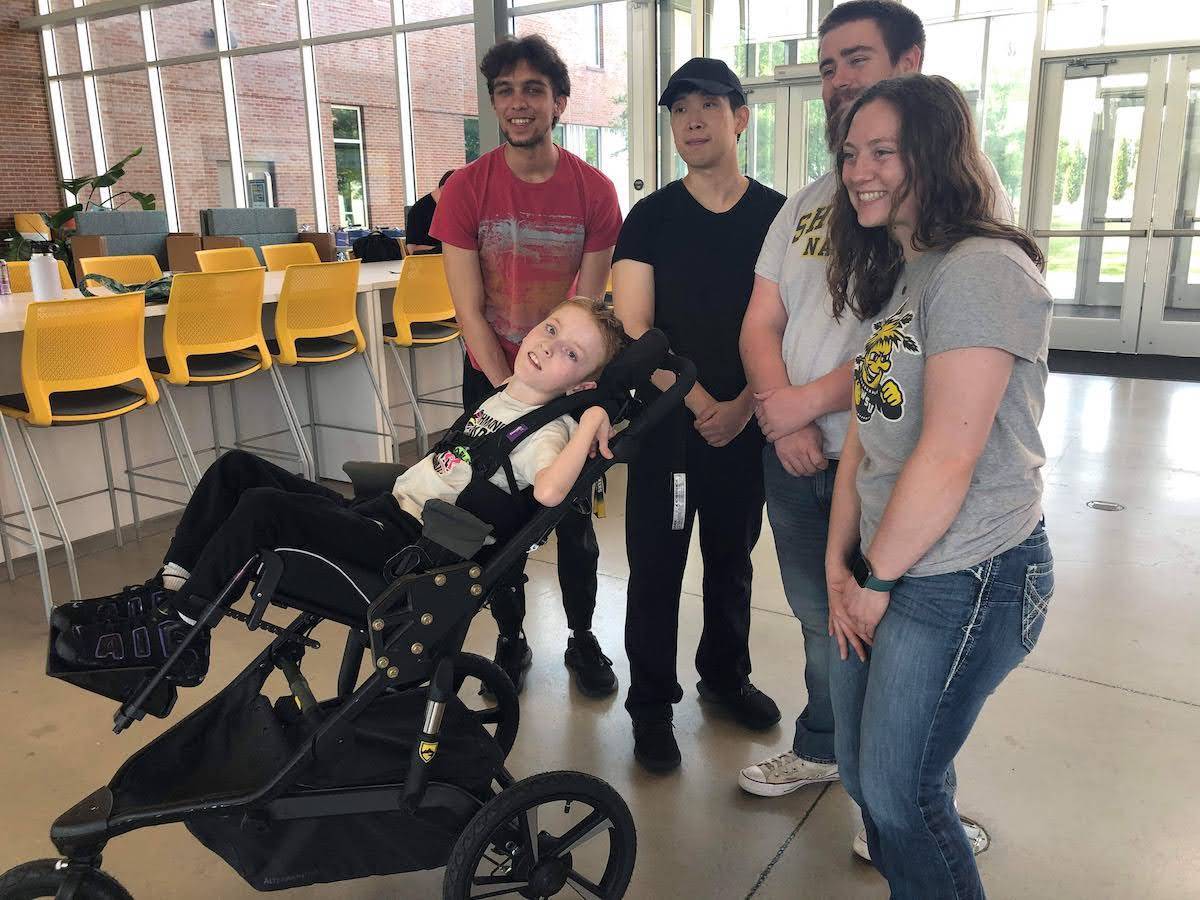The Accessible Design course concerned Wichita State University junior Reagan Kelley at first. She wasn’t an engineering major and wasn’t sure what she could contribute.
Conversations with Samantha Corcoran, associate engineering coordinator in the College of Engineering, answered her questions. The payoff at the end of the project made it worthwhile. Kelley, an exercise science major, and three other students modified an all-terrain wheelchair for Sutton, a 9-year-old boy who outgrew the chair’s previous dimensions.
“She was right – I had nothing to worry about,” Kelley said. “After all the hard work, we got to see the project delivered. To see the look on Sutton’s face and the look on his family’s faces … they were all so excited.”
Accessible Design (Engineering 302) is a multidisciplinary three-hour course in which students learn to design and create assistive technologies for people. The class concludes with a project for a specific person.
“It’s very meaningful to students,” Corcoran said. “It’s just not another problem in a book. They have a real-life customer who is depending on them.”
This spring, the class delivered projects to three children and an adult.
One student team worked with a school speech-language pathologist to design a push-button communication device for a child. Another team modified a mobility scooter into a wheelchair that can handle gravel trails for a child.
For the adult, the team worked with physical therapists to design an adaptive tricycle with special pedals, hand grips and brakes to help the woman exercise and improve her gait and balance.
“We teach them to be good product designers,” Corcoran said. “Understand your customers. Interview them. Develop empathy.”
Sarah Woelk is a 2022 Wichita State graduate. She worked with the class both as a student and as a professional. As a student, she worked on a bicycle for a patient with cerebral palsy. They designed a bicycle that was easier to pedal and a gear system that helps the patient practice their walking motion.
“The class helps get tools for people so they can better access their environment and do some of the things that they want to do that wouldn’t be available,” she said. “It helps you think about what people need. It helps you find resources for people.”
Kelley’s team included Alexander De Jesus (aerospace engineering), Isaac Lee (mechanical engineering) and Hunter Spoon (computer science). Sutton takes part in 5K races with his mother and required adjustments to his wheelchair. The team worked with his Cerebral Palsy Research Foundation occupational therapist for measurements and designed seat extensions for his legs.
Sutton was able to participate in his school’s field day and sent pictures to Corcoran so she could see.
“It became this amazing thing where Sutton got to experience all the things a kid should get to experience,” Kelley said. “This project really helped me empathize with (him). It broadened my view a lot of what some people are dealing with. For my future, it will definitely help me empathize with my clients and where they’re coming from and help me understand them better.”


 Courtesy photo
Courtesy photo